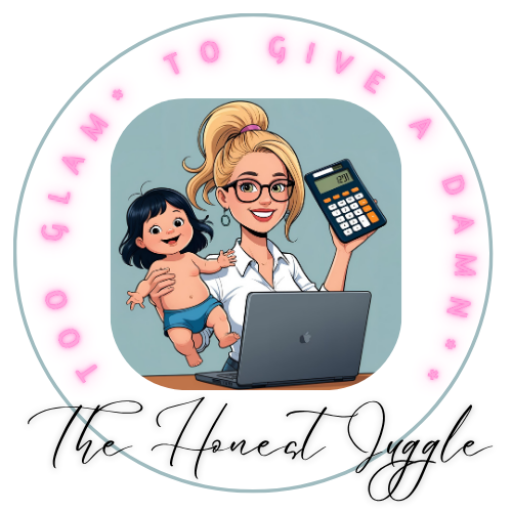This post is about my anxiety diagnosis and the medication I take for it, Sertraline, which is the generic name for Zoloft. I’m 33 years old and I’ve been taking Sertraline for about three years now.
Below is the story of how I got there.
This isn’t a clinical explanation or a perfect before-and-after story. It’s messy and personal. I’m sharing it because sometimes hearing someone else’s unfiltered experience can be more comforting than advice.

My Anxiety Diagnosis at 33: Why I Finally Sought Help
I know there are people out there who say everyone needs a diagnosis these days! Everyone needs a label!
Well, I’ll tell you what: saying “I have anxiety” is a lot cleaner than saying:
Don’t mind me if I call you frantic because I think maybe possibly I left the stove on last night even though I checked it five times. Don’t mind me if I start involuntarily crying. Just ignore it and keep talking, and whatever you do, don’t say it’ll all be alright, or what’s wrong? That will make me cry more. Don’t mind me if I don’t text you back right away. Trust me, I saw your text and I thought of probably ten different ways to reply, and I appreciate you as a person, and I don’t want you to feel that I’m dismissing you or ignoring you, but I’m afraid of what happens if I open the door to this conversation because maybe you have a good impression of me and I’ll ruin it by saying the wrong thing, or maybe I’ll just generally say something and you’ll react and I won’t know what I did and then maybe the relationship will be over, so I guess maybe it’s better if it’s over now…
Yeah. I could go on, and trust me, there is a similar monologue for just about every mundane happening on any given day.
But in a crisis?
That rambling, nervous Nelly voice finally shuts it and despite the chaos and adrenaline, I can actually think!
So What Is Anxiety?
I don’t know!
Is it unresolved trauma? Is it genetic? Just a different sensitivity level?
Does it really matter?
I’ll say this, and it only applies to my journey, I’m not suggesting anything about anyone else:
I’m glad I didn’t have the diagnosing type of parent. I’m glad that, despite the struggles, I had to fight it out for a while and came to a place of seeking diagnosis and medication on my own. I think I needed that foundation first.
Again, I’m not suggesting anything for anyone else. If my daughter displays signs of anxiety, I’ll take what action seems most appropriate at the time, and I wouldn’t try to recreate my own experience for her. Not to mention, that would be impossible!
Ha!
I’d have to get her a bunch of siblings, start her off with a disciplined mother from a well-organized family, kill off that mother from cancer (no thanks, knock on wood), add a second marriage, add some additional kids, add a messy divorce that never ended, and on and on it goes.
It’s ridiculous to think I would approach an entirely different set of circumstances with the thing that seems to have helped me. Now that that’s out of the way…
The First Signs of Anxiety I Didn’t Recognize at the Time
I don’t really know if I was an anxious child. Per my father’s stories about us as kids, I don’t think so.

The first memory I have of what truly seems to have been anxiety is from when I was a senior in high school. The church was having a “celebrate the seniors” thing, where the families made those fleece tie blankets, and then we all stood up there draped in the blanket while our parents put their hands on our shoulders and somebody said some words.
I have no idea what was said. I just remember getting extremely hot and uncomfortable. I didn’t want them touching me and couldn’t stand the thought of us all pretending to be a happy family (although now as an adult, I realize there are plenty of families who aren’t “happy” but are perfectly fine, so yes, I was probably being dramatic).
I just couldn’t take it and found myself making a scene by bolting for the little back exit door in tears. I went upstairs and hid in the preschool until everyone was gone, including my own family. I’m pretty sure I then drove somewhere or drove home, but I definitely don’t remember ever having a conversation about it with anyone.
Living With Anxiety: What It Really Feels Like
Fast forward to the job I was working three years ago as a financial coordinator in a healthcare setting. Prior to that, I had quit my first job. I had stopped jobs before due to things like going back to college or moving, but I had never just quit.
(Well, now I’ve gotten too good at that, but that’s a different story.)
I thought I was all set. The new job was task-based, semi-professional but still relatively active and urgent. It was post-Covid, so we wore company-supplied scrubs (thought that would eliminate social anxiety and decision fatigue), there was a gym nearby I’d use at lunch, and in many ways, it was a good job. I thought I had figured out the formula.
And yet, that dragon anxiety, or whoever she is, reared her head.

Involuntary tears. Analysis paralysis. Overwhelm. All of it.
Another thing about this job: a whole bunch of women in the office were taking Sertraline. Sounds kind of laughable, right? Like I just decided to succumb to peer pressure and jump off the cliff with them?
Not quite, but I did get to hear a lot of first-hand experiences. One woman described the day she dropped her 6-year-old son off and just drove away. She eventually came back, but the anxiety that prompted her to do that was what led her to talk to her doctor.
One final notable aspect of this job: the health insurance was cheap, and I could easily see a counselor for a small out-of-pocket copay.
So I figured, why not?
From “Maladjusted” to Diagnosed: The Insurance-Driven Labeling of Anxiety
I’ve never gone to a counselor for any significant length of time, but on and off I’ve seen different people. I’ve never felt like oh wow! after a session, but the conversations often helped shake things loose. Sometimes just anticipating the appointment was helpful.

With this counselor, we did telehealth sessions, even though she was local. Was she helpful? To some extent, yes. But she also seemed to be practically snoozing through sessions. Her questions and comments also weren’t particularly perceptive.
Still, two important things came out of those sessions.
1. The Medication Suggestion
I talked about my previous job, which was unorthodox, abrasive, and even, though this word is overused, toxic. (Long story short: lots of behind-the-scenes personal connections. Small town stuff.)
At the time, I was wondering if my experiences at the previous job were affecting my perspective at the current job.
I told the counselor I was considering asking my doctor about Sertraline. She just shrugged and said, sure, maybe it’ll take the edge off.
That nonchalant response did not endear her to me, but it did kind of help. I’d built up medication in my head as this terrifying, life-altering decision. Her casual response helped me realize maybe it’s not such a big deal to ask my doctor.
2. The Diagnosis Debacle
After a couple sessions, I got a notification to sign a document: I’d been diagnosed with adjustment disorder. This sent me into a (now hilarious) spiral; I thought I’d been labeled a maladjusted loon. I prepared a big response to talk it out with the counselor.
Her reaction?
“I just had to write that for insurance.”
Uhhh.
A few sessions later, I got another diagnosis: general anxiety disorder. I didn’t sign it. I canceled my next session and never went back.
Was it an official diagnosis or what?
I guess.
I still think it was odd and unprofessional to drop that on me without a real conversation. But after talking with various professionals since, yeah the shoe fits.

And honestly, I don’t care. The result is what matters: Sertraline helps me feel more even and relax more easily.
I also truly believe it helped me get through pregnancy, birth, and post-partum relatively unscathed.
Finally, I think it makes me a better mother. I still intellectually have all the same worries in the world, but I’m able to tone down the emotional side of it, and be present and gentle around my daughter.
I’ll never know of course, but I don’t think that would have been the case without medication.
But, I’m getting ahead of myself.
Talking to My Doctor About Anxiety Medication
The conversation with my doctor was the opposite of the counseling experience. Even after the counselor’s rather dismissive comment about medication, I still had it built up in my head quite a bit: what if the doctor thinks I’m drug-seeking? What if I cry? (Spoiler: I did.)
Ultimately, the doctor was very kind and supportive, almost too much so. Overwhelming in a different way. (My theory is that since I didn’t grow up with an affectionate parent, I find big displays of support unsettling.)
She suggested Sertraline, and said it’s a very common prescription for women (what does that say about this country?), and that side effects are mild unless you’re on a high dose.
What It’s Like Taking Sertraline (Zoloft): Three Years Later
My experience on Sertraline has been very positive. I don’t feel it “kick in” or anything, but I do believe it’s helped me better navigate life. It is a pretty gentle medication, compared to things like Xanax, from what I understand anyway.
I used to be skeptical of medication. But here’s where I’ve landed:
Modern life in the U.S. is unnatural in many ways: low on physical activity, low on quality community connections, rampant hyper consumerism and emphasis on independence to a fault.
I have tried asking myself: what are my alternatives to participating in it?
There aren’t many good ones, though I’m working on it. So if I have to participate, why fight the thing that helps me do what I don’t want to do, but have to?
It’s like owning a car. I hate owning a car. It’s a giant scam. But there’s no public transportation where I live, so I own one. That’s how I think of the medication: a tool that gets me from A to B for my sake and my family’s sake.
Would I rather get from A to B on a bike and later nap, snack, and swim with no medication required? Maybe decompress with friends and family over a delicious and healthy dinner? Take regular vacations from work?
Yes. But I don’t live in that world.
I haven’t yet figured out how to make enough money to live in that world and our culture certainly gets further and further away from that world for the middle and working class every day.
Thus, I take the medication. And it helps.
Looking Ahead: The ADHD Chapter Begins
So what about the ADHD diagnosis?
That came later.
Stay tuned.

Interested in personal experience posts like this? Read about my birth experience here, or my musings on my ADHD diagnosis here, or even my post about the blues here.
